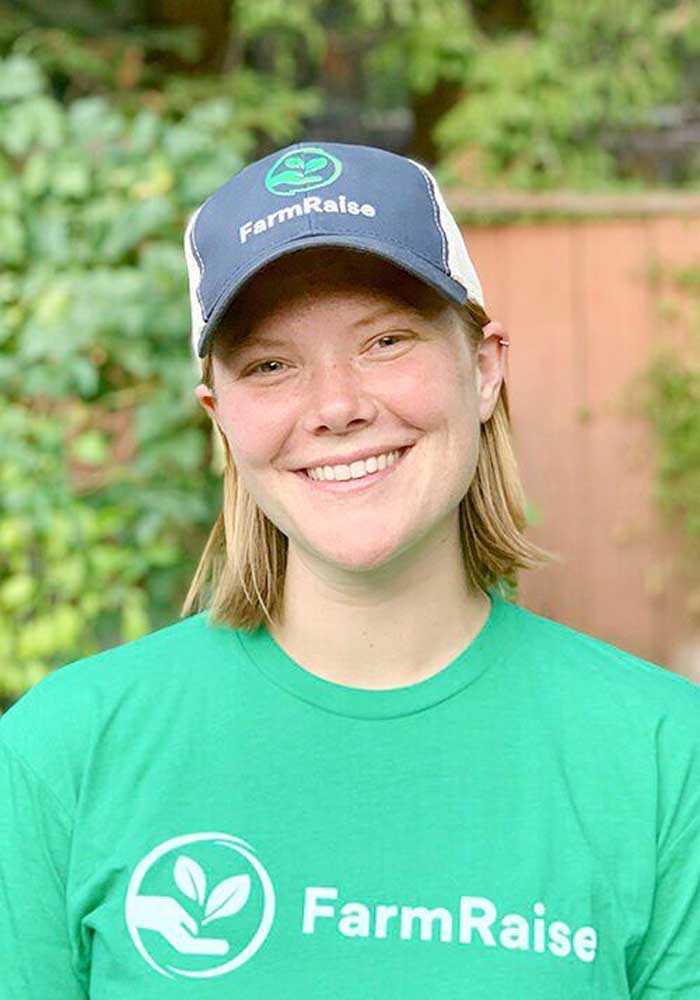Startup connects farmers with project financing
Published 12:30 pm Sunday, January 2, 2022

- Sami Tellatin.
During her years working for the USDA, Sami Tellatin heard from farmers about the barriers to adopting innovative soil health management practices such as no-till and cover cropping.
The biggest challenge, despite high demand, was finding the money to help pay for projects, Tellatin said.
In 2020, Tellatin co-founded a startup company called FarmRaise, a web-based platform that assesses whether producers are eligible for federal grants and loans, and provides “success teams” to assist with applications.
Switching farming practices can be expensive. Farmers may need to buy new equipment, such as no-till seed drills, that can cost tens of thousands of dollars.
Though the investment does pay off over time — requiring fewer fertilizer and pesticide applications — it can take five years or more before farmers see any return.
“Funding through grants and other mechanisms is important to surmount that barrier,” said Tellatin, the chief operating officer of FarmRaise.
To date, FarmRaise has helped growers from across the country submit more than 100 applications seeking $3 million for stewardship projects. More than 10,000 farmers have taken the company’s eligibility quiz, tapping into a database of 1,000 state and federal funding programs.
“It’s mostly planning and accountability,” Tellatin said. “We’ll manage all of the deadlines for you, and keep you up to date on different opportunities.”
Tellatin, 29, grew up in the Ozarks of southern Missouri, where she developed a love of the landscape with its rolling hills, caves and lush deciduous trees.
She fondly remembers visiting her family’s cabin at Bull Shoals Lake, a 45,150-acre reservoir straddling Missouri and Arkansas that is managed by the U.S. Army Corps of Engineers. The lake’s heavily forested shoreline is undeveloped and protected as a buffer zone for 400 feet, which left it undisturbed for Tellatin to explore.
“That really instilled in me an appreciation for public resources, the land and land management,” she said.
Tellatin studied biological engineering at the University of Missouri, with the intention of pursuing a career in the renewable energy sector.
Instead, she fell in with the farm crowd while working on a project turning agricultural waste into energy by capturing methane emissions through anaerobic digestion.
“There is something about farms that sucks people in, in a wonderful way,” Tellatin said. “It takes a really creative, gritty and entrepreneurial person to be a farmer. Working with those people is really fun and rewarding.”
That led to a job after graduation with the USDA’s Sustainable Agriculture Research and Education program, or SARE. Tellatin joined the agency as a project manager and extension associate, conducting outreach with growers.
Though her primary focus was serving farmers in the Midwest, she worked remotely in Corvallis after her husband landed a fundraising job with Oregon State University.
Tellatin spent two years in Corvallis, inspired by the vibrancy and diversity of Willamette Valley agriculture. “Oregon was such a cool place to live,” she said.
In 2018, Tellatin enrolled in the Emmett Interdisciplinary Program in Environment and Resources at Stanford University. There, she met Jayce Hafner, the now-CEO of FarmRaise. They shared an interest in agricultural sustainability and soil health, with Hafner having grown up on her family’s cattle farm in Virginia.
Wanting to start their own company, Tellatin and Hafner came up with the idea for FarmRaise to streamline the process of applying for farm financing.
Including Tellatin, Hafner and the company’s third co-founder, Albert Abedi, FarmRaise now has 12 employees and is looking to grow.
“The acute need for funding is there,” Tellatin said. “The more interest we can get … the more we might be able to engage them and get some funding available.”
Producers who visit the FarmRaise website are prompted to take a two-minute quiz to determine which programs they might be eligible for, filling out basic information about their farm or ranch. From there, they can sign up for a premium account to work directly with the company’s “success teams.”
“The people we can actually do the most for today are those farmers who are established, but they’re not huge,” Tellatin said. “They’ve been at it for several years. They have production and sales, and control land. They’re looking to invest and grow the operation.”
To learn more about FarmRaise, or to take the funding eligibility survey, visit www.farmraise.com





